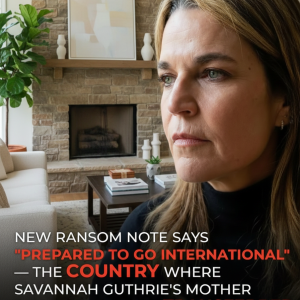The narrator begins by reflecting on her marriage, which she believed was stable and predictable in comforting ways. For seven years, she and her husband Daniel had shared small daily rituals—morning coffee, quiet evenings, familiar patterns of living—and long-term dreams of having children someday. These dreams were central to their future, a hope that tied them together as a couple. But her life changed abruptly when she had to undergo a hysterectomy. Due to complications, doctors informed her that she would never be able to carry children. She felt heartbroken and vulnerable after the life-altering surgery. Daniel repeatedly tried to reassure her by saying they would face this challenge together, that their connection mattered more than anything. Feeling emotionally fragile, she took comfort in his promises.
Only three days after returning home, still physically weak and emotionally raw, she entered the kitchen expecting tenderness or help. Instead, she saw an invoice taped to the refrigerator, written by Daniel. It was titled “Itemized Costs of Caring for You — Please Reimburse ASAP.” The list shocked her: $120 for driving her to the hospital, $75 per day for helping her shower, $50 for each meal he had cooked, $300 for missing a poker night, and even $500 for providing emotional support. The total came to $2,105. She was stunned that her husband had turned acts of care—things most would consider part of loving partnership—into financial transactions. The invoice cut deeply, especially during such a vulnerable time. It revealed a harsh, transactional side of Daniel that she had never fully recognized.
The moment she saw that bill, something shifted inside her. She realized that Daniel viewed her recovery as a burden that required payment. Instead of confronting him immediately, she decided to take a different approach. If he wanted to translate love, care, and partnership into dollars, she would show him the actual value of everything she had contributed to their marriage. With quiet determination, she began keeping detailed notes. Every time she cooked a meal, even while recovering, she assigned it a monetary value. Every load of laundry she folded, every emotional concern she addressed, and every conversation where she supported him became part of her own “invoice.”
Her ledger became a record not only of her labor but also of the emotional weight she carried in their relationship. She logged each meal she prepared during her healing period at $80. She added $15 for each shirt she washed, a symbolic reminder of the everyday tasks she routinely completed without acknowledgment. Listening to his daily work frustrations—something he depended on her for—was listed at $75 per session. Comforting him about his worries, particularly concerning his mother, cost $150 each time. Finally, she included a line for seven years of marital intimacy, assigning a value of $200 to each instance. This calculation, though pointed, underscored a stark truth: if Daniel was going to reduce care to money, she would highlight the financial worth of contributions he had long taken for granted.
By the time she finished her ledger, her total had reached a staggering $18,247. Determined to make her point clearly, she formatted the invoice professionally, printed it, and stamped it with bold red lettering that read “FINAL NOTICE — PAYMENT DUE.” When she handed it to Daniel, he initially smirked, likely assuming it was a joke or an overreaction. But as he read through the detailed list of everything she had done for him, his expression changed. The weight of the document—its accuracy, its emotional charge, and its underlying message—became impossible for him to dismiss. It forced him to confront the imbalance and ingratitude in their marriage.
Once he finished reading, she looked him in the eye and told him plainly that this invoice represented the true cost of being his wife. If he ever tried to bill her for her recovery again—especially after such a traumatic surgery—she would not hesitate to escalate the matter. Her next invoice, she warned, would come from a divorce attorney. The threat was not shouted or dramatized; it was delivered with the calm certainty of someone who recognized her own value. Her words had an immediate effect. Daniel went silent, and from that day forward, no more invoices appeared on the refrigerator. The confrontation marked a turning point in their marriage, reestablishing boundaries and forcing him to acknowledge the emotional and practical contributions she had always made without question.





